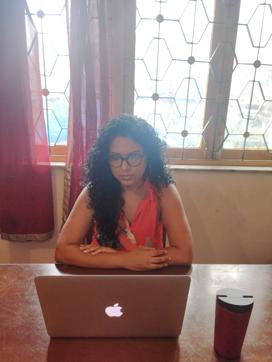Tweaking the rules of therapy in the lockdown
Covid-19 has made it harder and yet more necessary for patients to connect with counsellors and psychologists. Among the most common problems - missing body language signals, the lack of a safe space.
Mental health is the perennial elephant in the room. We wait for Time to erase deep-rooted scars; we expect hobbies to erase the loss of people. Amid the pandemic, as anxiety builds, the elephant has become harder to shove under the carpet. More people are turning to psychoanalysis, the talking therapy, most of them via video chat.

And this is bringing with it a set of problems analysts don’t yet know how to solve.
“Earlier, the analyst and analysand occupied the same physical space of the clinic. If someone was speaking softly, you didn’t say ‘speak louder’; if there was a pause, you took it as a sign of how the person was feeling. Now you’re forced to intrude and say, ‘are you there’,” says psychoanalyst Ashok Nagpal.
Non-verbal clues are missed, as the screen only shows a person waist-up. “The way a person walks in or sits down are all clues. Also, earlier you were also separated from each other by a distance of 4 to 5 ft with a table in between. Now you meet across an 18-inch screen, you are too much in each other’s faces. Still, both sides have to manage,” says Nagpal.
The good news is people are reaching out, often for the first time, seeking help with issues that would have otherwise been ignored—like strained interpersonal relationships within the family. BMC-Mpower 1 on 1, a mental health helpline (1800-120-820-050) set up in April by the Maharashtra government in collaboration with BMC and Mpower Foundation to address distress calls, received around 45,000 calls between April and May with 52% of calls related to anxiety about the post-lockdown scenario. Most of the calls were about work-life balance, family and friends.
Chander Sharma, 58, a school teacher in Delhi, for example, was assailed by guilt having sent her mother back to her home. “Mother and I are close but there are unresolved issues. The lockdown forced us to be together. I sent her back to stay with my brothers and then couldn’t handle the guilt,” she says. Sharma’s online and telephone sessions with her analyst have her daughter’s backing but not her husband’s (To him, an analyst is an outsider – why should she share personal problems with him?). The problem is her husband is right at home when her sessions are on. “Sometimes, I feel inhibited,” she says.
A Delhi-based activist, Deepti, 33, who goes by only one name, says she would earlier use the Metro ride to structure what she would say when she met her analyst. “In the first five minutes of an online session, I now don’t know what to say,” she says. For online, there may be an unconscious pressure on the analysand to be ‘on’ at the prescribed hour. As psychoanalyst Arunava Banerjee of Kolkata says, there is a difference between being present and being certain about what one wants to say.
Deepti, also says it’s sometimes disconcerting that when she is looking at her Skype screen, the analyst is looking elsewhere. The Internet has helped in overcoming barriers of distance and time, says Banerjee, but “at a cost to the quality of the encounter. A psychoanalytic treatment, however, is not a dogma locked up in a library, it listens and responds to the actualities of its time”.
Trust in the analyst goes a long way but some ground rules need to be set. In case of a bad Internet connection, “we decided we would switch to audio or the telephone,” says Deepti. “The doorbell as a disturbing element is not a factor. I’ve never been alone when my session is on. In case it rings, my partner answers it.” The problems of online sessions are not insurmountable, she says, but she does miss the couch.

The Freudian Couch, once central to psychoanalysis, was actually a Victorian day-bed, a gift by a patient to the good doctor. In 19th-century Vienna, Sigmund Freud, who fathered the discipline, discovered its uses in getting the analysand’s defences down as s/he talked while horizontal.
Many analysands now vouch for The Chair. Before and during the lockdown, that is a piece of furniture easily arranged. Dibyokamal Mitra, 26, a researcher in Kolkata, says he talks to the analyst by placing the chair at a slant so as not to look at him directly during the virtual session. “Not looking helps. We’re not doing a dialogue. It’s one person talking and the other listening and punctuating your speech. Sometimes, the analyst may stress or repeat a word or a sentence you have used; an imaginary identification is encouraged,” he says.
Virtual sessions have also impacted session frequency. “Earlier, sessions were usually twice a week. Now, it’s on demand. Patients let you know when they would be free,” says Nagpal. As most people are working from home and their partners are as well, the schedule is often worked around a time convenient for both in case work and session areas are the same.
Adds Nagpal: “In psychoanalysis, you keep striving for the virtual, you need to get immersed to reach a space and it is the trust between both that makes the analysand cross over and reach an area of thought even with the distraction of looking straight at the analyst’s face.” Online communication can, in fact, be an ally in psychoanalysis, he says. This might just be the new normal.
Dipti Kharude, 36, a freelance writer in Mumbai, says there are positives of undergoing analysis on Zoom: she does not have to travel for her sessions, especially in the rainy season. Due to Zoom meetings, she has an option of continuing the analysis. “I need to be okay in the pandemic, some old past anxieties are resurfacing,” she says. “Online sessions are not a seamless experience; face-to-face is always better. A loss of connection or a freezing of the screen feels traumatic. But overall, I’m thankful for this option. Both me and the analyst understand the limitation of this platform and work around it.”





